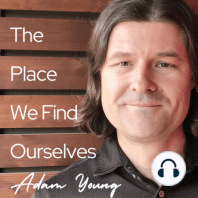51 min listen

9 Why Engaging Your Story Requires Anger at God
9 Why Engaging Your Story Requires Anger at God
ratings:
Length:
34 minutes
Released:
Jun 4, 2018
Format:
Podcast episode
Description
Sometimes, “the place we find ourselves” is a place of anger at God. Some of us grew up in Christian sub-cultures in which anger at God was not allowed. If you were angry at God for too long, you had a sense that there was something wrong with you. As a result, many Christians feel ashamed if they find themselves angry at God. However, if you engage the heartache and pain of your story, there will inevitably be times where you are angry at God. Sooner or later, if you are emotionally honest, you will find yourself angry at your Creator. Have you ever just poured out your anger, before editing your words? The Bible, in multiple places and especially the book of Job, invites us to do exactly this because when we finally express our unedited anger fully to God, he is able to address our hearts.
Released:
Jun 4, 2018
Format:
Podcast episode
Titles in the series (100)
6 When Your Femininity Is Assaulted with Tracy: In today’s episode, Tracy courageously shares one of her stories with us. Born to a family longing for a boy, the war against her femininity began early. Tracy learned that attention with her father could be won by performing well in sports,... by The Place We Find Ourselves